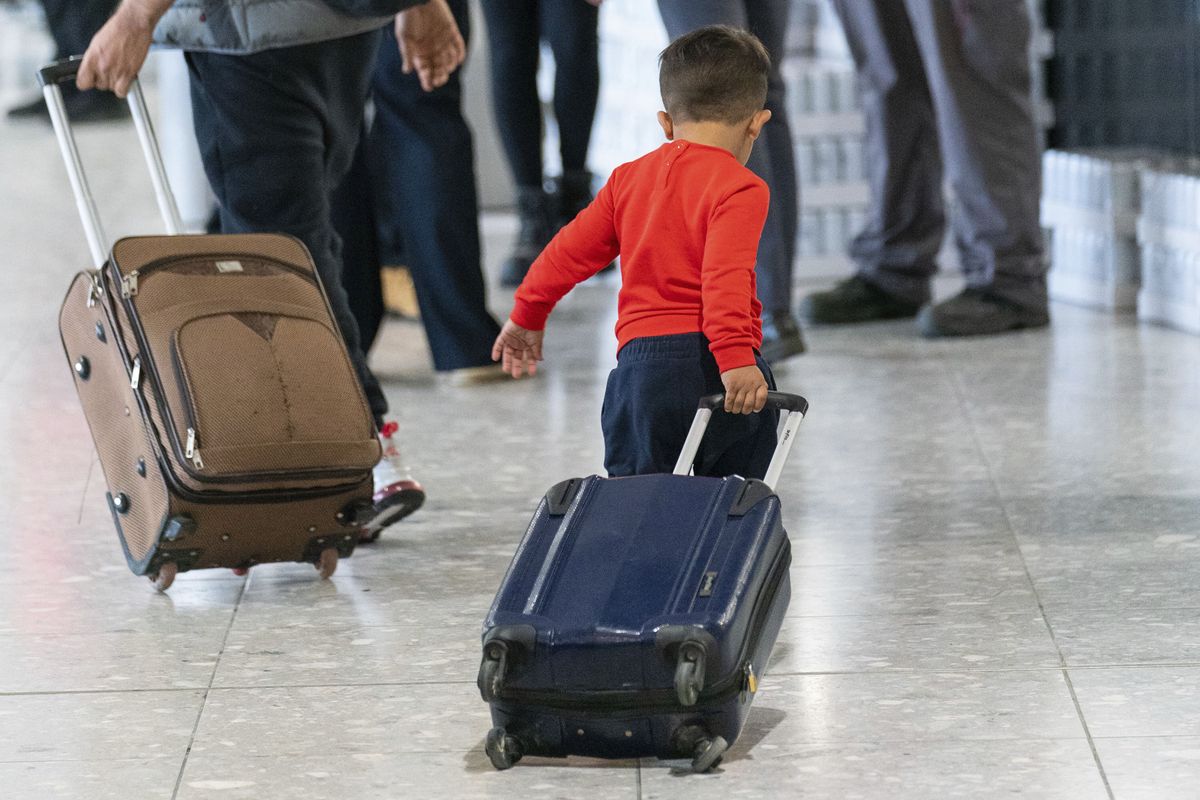As U.K. airlift ends, Johnson vows to help more Afghans leave

LONDON — Prime Minister Boris Johnson vowed Friday to “shift heaven and earth” to bring more Afghans to the U.K. once Britain’s airlift from Kabul airport ends in the coming hours, with hundreds of people eligible for evacuation left behind.
Britain has evacuated almost 14,000 U.K. citizens and Afghans from Kabul in the two-week operation, but the final flights are departing on Friday. Hundreds of U.K. troops at the airport are due to leave in the next few days.
U.K. Defense Secretary Ben Wallace has said that about 1,000 Afghans authorized to come to Britain, and as many as 150 U.K. citizens, have not made it to the airport and will likely be left behind.
Johnson said Britain will try to get more people out of Afghanistan after Aug. 31, when the U.S.-led mission ends.
“There will sadly be people who haven’t got through, people who might qualify,” Johnson told reporters. “What I would say to them is that we will shift heaven and earth to help them get out, we will do whatever we can in the second phase.”
It’s unclear how that might happen. U.K. officials hope some people may be able to leave Afghanistan overland for neighboring countries such as Pakistan, where their claims to come to the U.K. could be processed.
That will depend on cooperation from the Taliban, however.
Tens of thousands of foreign nationals and Afghans who worked with them have sought to leave the country since the Taliban’s swift takeover this month in the wake of U.S. forces’ departure.
The desperate, chaotic exodus turned deadly on Thursday, when a suicide bomber struck crowds queuing near the airport in Kabul. The attack killed 169 Afghans, according to a preliminary count, and 13 American troops.
Two British citizens and the child of another Briton were among those killed, the U.K. government said Friday. Two other Britons were injured. It was unclear whether the British victims were dual U.K.-Afghan nationals.
Johnson denied that the rushed departure amounted to a national humiliation for Britain, which fought its first war in Afghanistan in the 19th century. The U.K. was the second-largest partner in the 20-year NATO military campaign in Afghanistan, after the United States. Some 150,000 British troops have served in Afghanistan since 2001, and 457 were killed there.
“The timing of this is certainly not the one that this country would have chosen, and I think that everybody understands that,” Johnson said.